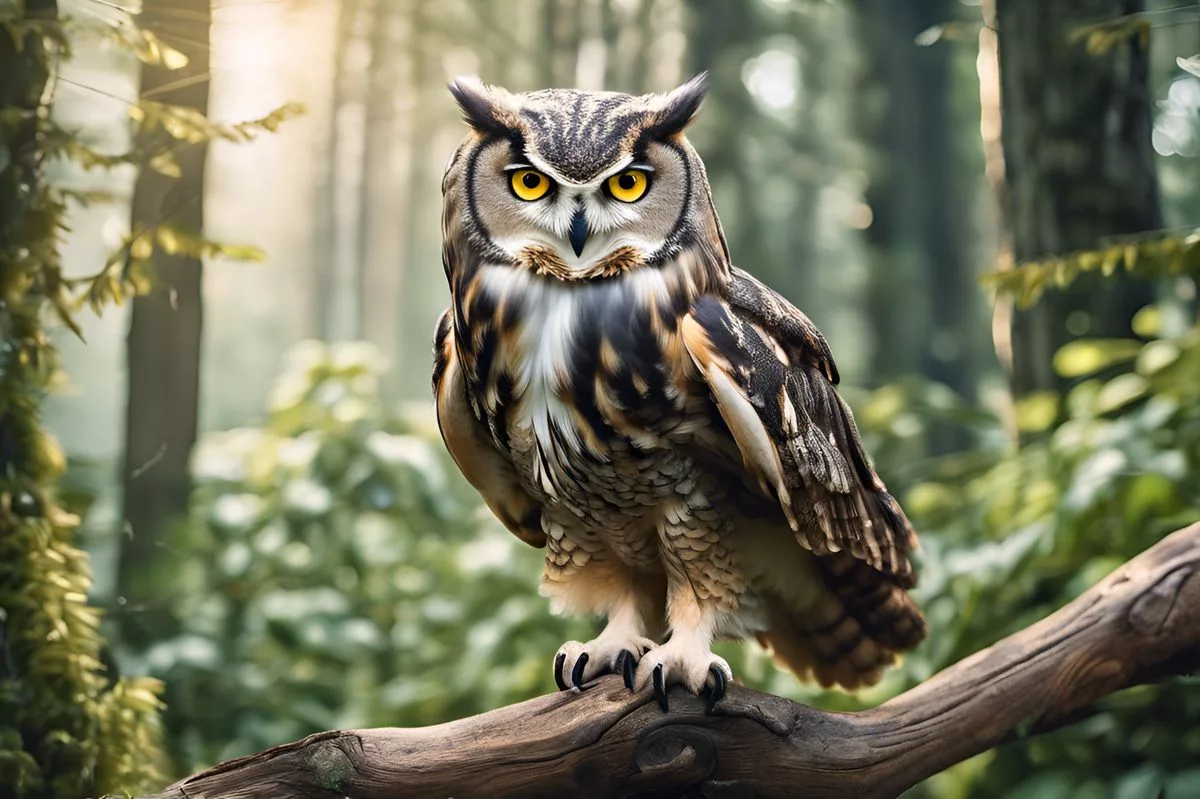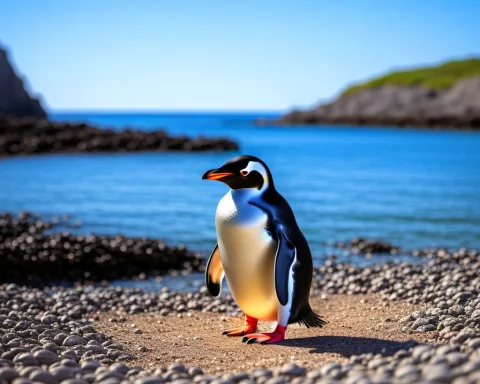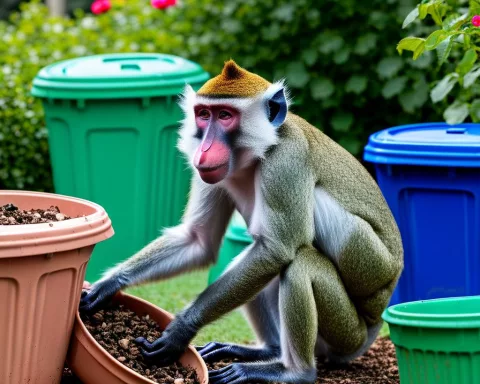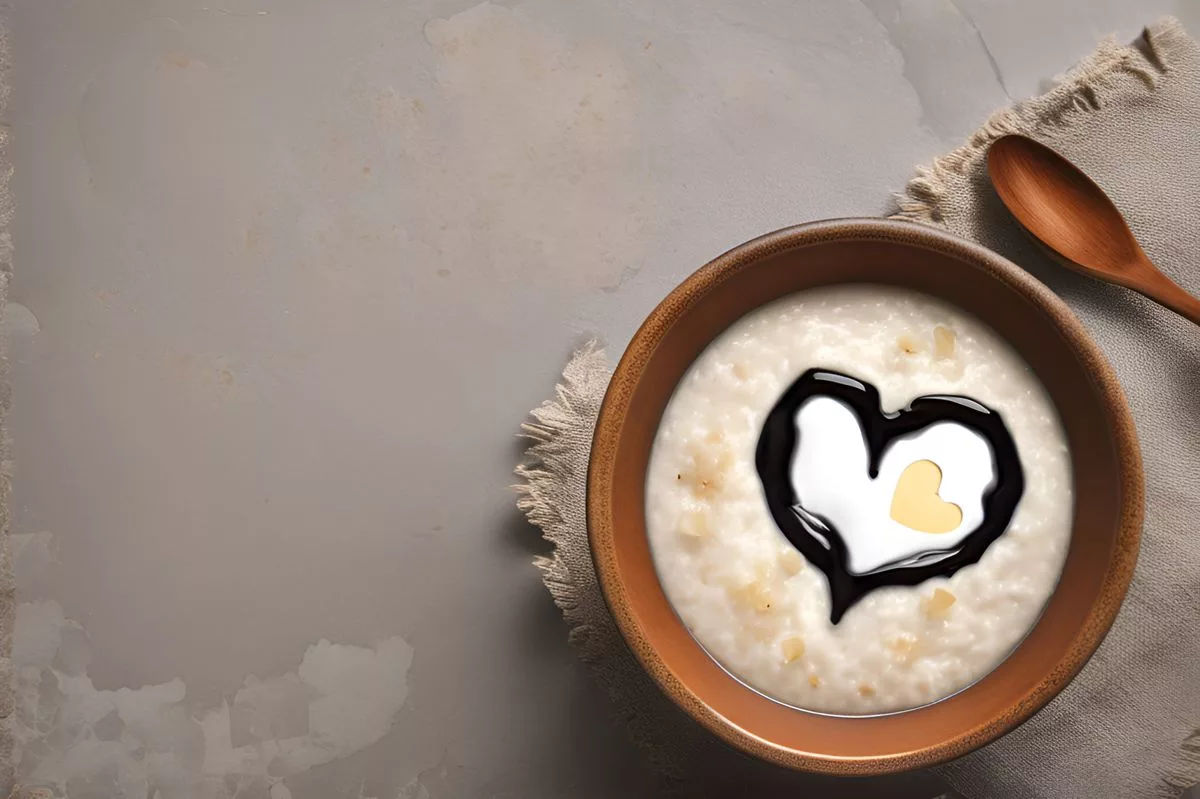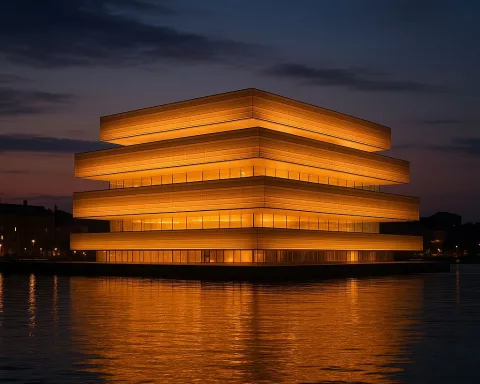The Owl Orphanage Rehabilitation Centre in Velddrif, started by Jacques Nel in 2018, is a special place for injured and orphaned wildlife, especially birds of prey like owls and sparrowhawks. Since opening, they have helped over 2,000 animals, giving many a second chance at life. Jacques and his small team work tirelessly, often at night, to rescue and rehabilitate these creatures, facing challenges like pollution and cruelty. The center also educates the community about protecting wildlife, hoping to inspire kindness and care for nature. In this sanctuary, each rescued animal is a shining beacon of hope for a brighter future.
What is the Owl Orphanage Rehabilitation Centre?
The Owl Orphanage Rehabilitation Centre in Velddrif, founded by Jacques Nel in 2018, rehabilitates various wildlife, focusing on birds of prey. It has aided over 2,000 animals, offering a sanctuary for owls, sparrowhawks, and more, while promoting wildlife education and community engagement.
A Beacon of Hope in Velddrif
In the picturesque town of Velddrif, near the tranquil Berg River, lies a haven dedicated to the preservation and rehabilitation of some of nature’s most magnificent yet fragile beings. The Owl Orphanage Rehabilitation Centre, established by Jacques Nel in 2018, epitomizes a commitment to wildlife protection and recovery on the West Coast. This sanctuary offers more than just a refuge; it provides a vital second chance for its diverse array of inhabitants, underpinned by a mission of compassion and steadfast dedication.
The Genesis of a Mission
Jacques Nel’s journey into wildlife rescue began in St Helena Bay, focusing initially on owls. However, the growing need for assistance across various species soon became evident, prompting Nel to broaden his mission. “There was nobody else on the West Coast,” he remarks, underscoring the critical gap his center fills. One of the centre’s first rescues—a spotted eagle owl injured in a vehicular accident during the festive season—perfectly captures its ethos. The owl’s two-month recovery journey, culminating in its return to the wild, stands as a testament to the centre’s rehabilitative success.
Running a wildlife rescue operation is a formidable task. Nel’s unwavering commitment shines through as he remains reachable around the clock, ready for emergency calls even at night, on weekends, and during public holidays. His work transcends the daylight hours, extending into the quiet of the night, illustrating the perennial nature of his dedication. In 2022, the Owl Orphanage relocated to a larger farm in Velddrif, enabling it to accommodate a wider variety of wildlife. The centre now serves as a sanctuary for not only diverse owl species but also sparrowhawks, booted eagles, waterfowl, buzzards, tortoises, and small deer like grysbok and steenbok.
The Impact and Challenges
The Owl Orphanage’s impact is reflected in its impressive numbers. Over the past year, the centre has rehabilitated more than 480 birds of prey. Since its inception, Nel estimates that they have possibly aided over 2,000 birds. The exact figure may be elusive, a testament to the relentless and often overwhelming nature of their work. Yet, numbers alone cannot convey the emotional highs and lows inherent in wildlife rehabilitation. Nel has encountered severe cruelty towards animals, with many rescues ending in euthanasia. “Eighty percent of the time you do sad things,” he admits, confronting the harsh realities of poisonings, illegal wildlife trade, and snares.
Poisoning poses one of the most significant threats. Birds often ingest poison when consuming contaminated rodents, a problem exacerbated by the widespread use of rodenticides. The centre relies heavily on the SPCA and local veterinarians for initial rescues and medical assessments. If there’s a glimmer of hope for recovery, the animals find their way to Nel’s sanctuary. Amidst the grim backdrop, the ultimate aim remains clear: to release these creatures back into their natural habitats.
The Team and Financial Struggles
With a small but fervently dedicated team, Nel navigates the multifaceted challenges of wildlife rehabilitation alongside two steadfast staff members. The operational costs are considerable, amounting to around R64,000 monthly. A significant portion of these expenses goes towards food, with the centre catering to a diverse diet that includes seeds, grains, and a large number of frozen mice. Owls, for instance, might consume four mice every night, resulting in a monthly food bill that can soar to R24,000 during peak seasons.
Financially, the centre leans heavily on private funding, with a substantial share coming from a single benefactor in the United Kingdom. “If it wasn’t for him, we would have had to close our doors,” Nel concedes. Local support remains limited, partly because the centre is a private facility. To minimize stress for the animals, day visitors are not allowed. “Stress is the number one killer,” Nel explains, emphasizing that the sanctuary prioritizes the well-being of the animals over human curiosity or financial gain.
Looking Ahead: Expansion and Education
The future of the Owl Orphanage looks as dynamic and adaptive as its present. Nel envisions expanding their capacity to also include blue cranes. The centre is in constant need of funds and materials such as shade cloth, wood, and poles. Moreover, Nel is working on establishing community “talkathons” in collaboration with other wildlife organizations on the West Coast. These educational initiatives aim to raise public awareness and prevent harm to animals before they necessitate intervention.
This forward-looking approach is crucial. Nel understands that education and community engagement are pivotal in fostering a culture of respect and protection for wildlife. “It’s the only way we’re going to try and make an impact,” he asserts. By enlightening the public, the centre hopes to mitigate the causes of wildlife distress and reduce the need for rehabilitation services.
The Owl Orphanage Rehabilitation Centre stands as a beacon of hope amidst the frequent darkness of wildlife exploitation. It is a testament to what unwavering dedication and compassion can achieve. Jacques Nel and his team’s relentless efforts provide a vital lifeline to the West Coast’s wildlife, embodying a mission that marries care with action, ensuring that each rescued animal has a fighting chance to return to its natural habitat.
FAQ: Owl Orphanage Rehabilitation Centre
What is the Owl Orphanage Rehabilitation Centre?
The Owl Orphanage Rehabilitation Centre is a wildlife sanctuary located in Velddrif, founded by Jacques Nel in 2018. It primarily focuses on rehabilitating injured and orphaned birds of prey, such as owls and sparrowhawks, while also providing education to the community about wildlife protection. Since its establishment, the center has aided over 2,000 animals.
How does the Owl Orphanage assist injured wildlife?
The center provides a safe haven for injured and orphaned wildlife, offering medical care, rehabilitation, and a chance to return to the wild. They collaborate with local veterinarians and the SPCA for initial rescues and medical assessments. Each animal’s recovery is prioritized, with a focus on minimizing stress to enhance their healing process.
What kind of animals are cared for at the centre?
While the center specializes in birds of prey like owls and sparrowhawks, it has expanded its care to include various species such as booted eagles, waterfowl, buzzards, tortoises, and small deer like grysbok and steenbok. The center’s diverse wildlife rehabilitation efforts continue to grow as they acquire more resources.
What are the main challenges faced by the Owl Orphanage?
The Owl Orphanage faces significant challenges, including pollution, animal cruelty, and financial constraints. Poisoning is a major threat to birds, as many ingest poison through contaminated prey. The center relies heavily on private funding and donations to cover operational costs, which can reach around R64,000 monthly.
How can the community support the Owl Orphanage?
Community support is vital for the center’s survival. People can contribute through donations, providing materials like shade cloth and wooden structures, or participating in educational initiatives. Jacques Nel plans to host community “talkathons” to raise awareness and engage the public on wildlife conservation efforts.
What future initiatives does the Owl Orphanage have planned?
Looking ahead, the Owl Orphanage aims to expand its capacity to include more species, such as blue cranes. They also plan to enhance educational outreach programs to foster a culture of respect for wildlife within the community. By raising public awareness, the center hopes to reduce the need for rehabilitation services and promote a safer environment for wildlife.

